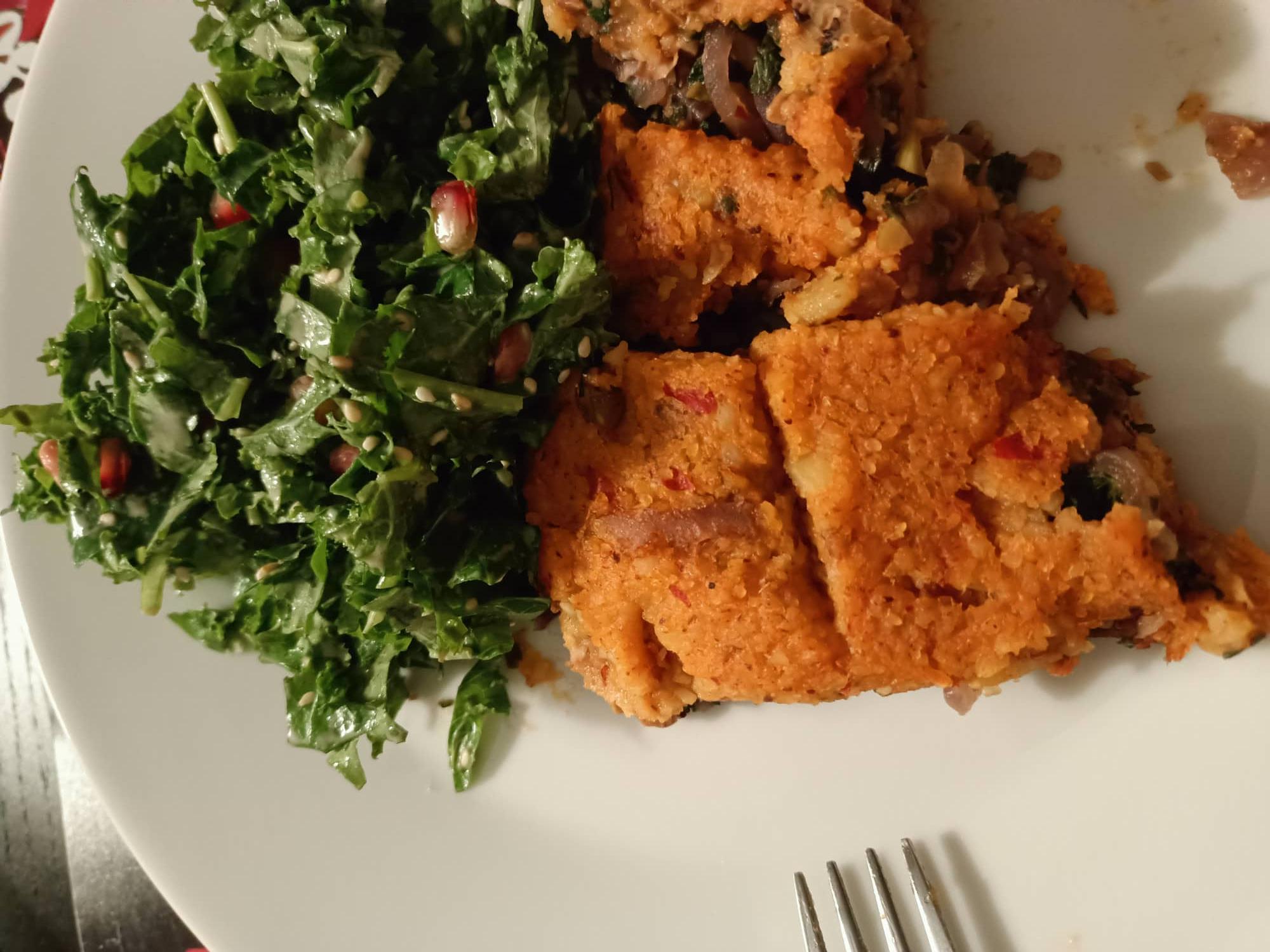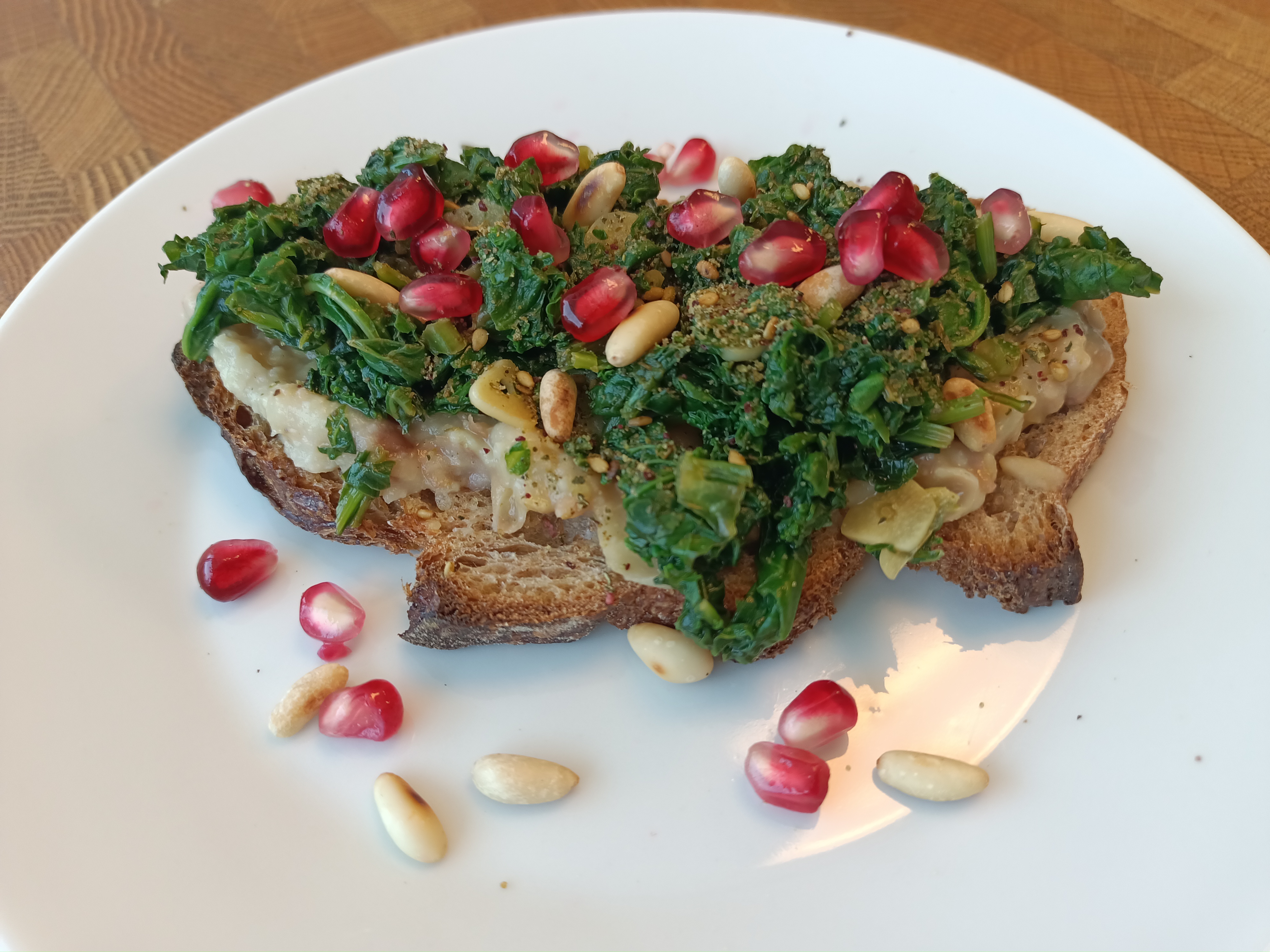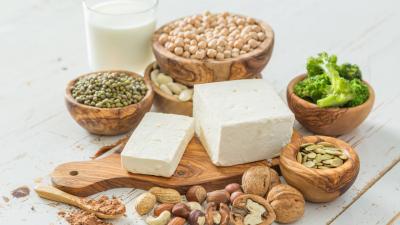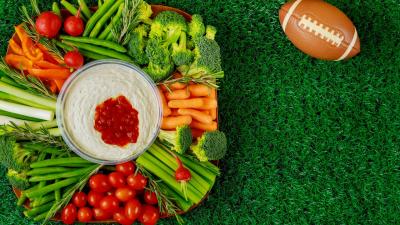Plant-Based Meal Suggestions for Ramadan
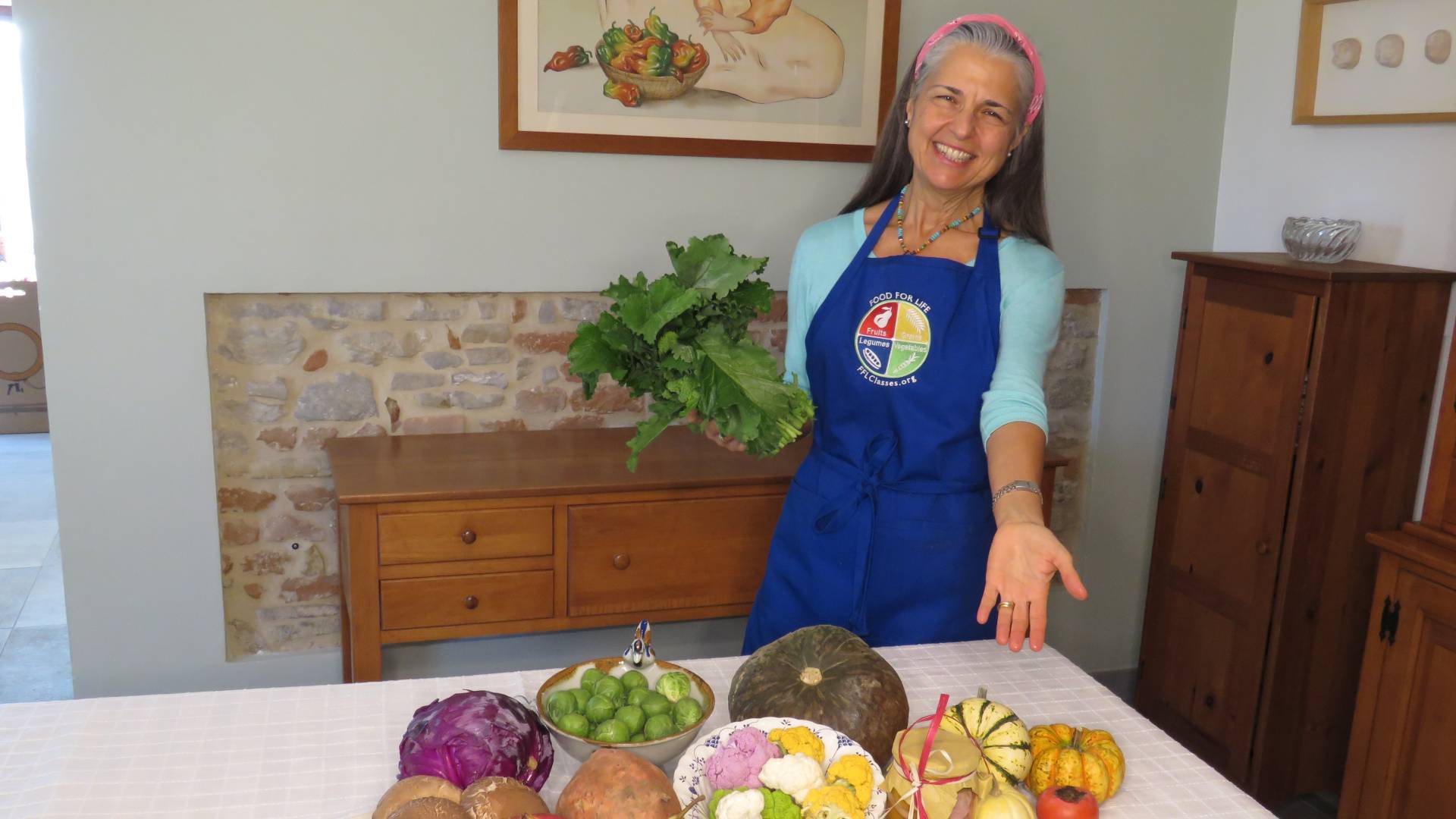
The holy month of Ramadan is observed by Muslims throughout the ninth month of the Islamic calendar, ending with Eid al-Fitr, the festival of the breaking of the fast.
Below, Canan Orhun, a Physicians Committee Food for Life instructor based in Abu Dhabi, shares some tips for suhoor (prefasting meal before sunrise) and iftar (breaking the fast), as well as plant-based recipes for Potato Kibbeh and Beans and Greens Toast.
May this Ramadan be a healthy one for all those who practice the dawn to sunset fasting. Whether you are plant-based or not, eating a plant-predominant diet during this month will help you stay healthy and maintain you through the fasting period each day. Here are some suggestions.
Suhoor (Prefasting Meal Before Sunrise)
- Eat fluid-rich foods to make sure you are well-hydrated, preparing for the day ahead.
- Choosing starchy foods for energy, preferably complex carbohydrates such as sweet potatoes; whole grains (bulgur, brown rice, quinoa); whole-grain pasta, pita, and breads (as opposed to white breads, pastries, cakes, cookies); and high-fiber foods for feeling fuller will help maintain you and avoid constipation.
- Porridge with whole oats and soy milk will provide you fiber, minerals, complex carbs, and protein; add dried or fresh fruits and nuts as topping.
- Legumes are the best when it comes to providing the body complex carbs and protein.
- Lentil soup is a welcome addition to all meals.
- Brown rice and lentils, a hummus wrap with green leafy vegetables, and a whole-grain and bean salad will help give you a healthy start to your day.
Iftar (Breaking the Fast)
The temptation might be there, but it is important not to overindulge after ending the fast.
- It is healthier to consume low-fat, fluid-rich foods and foods with natural sugars, like dates and fruits.
- Selecting nutrient-rich plant foods will help nourish the body—replenishing the necessary, vitamins, minerals, and amino acids—and get it ready for the next day’s fasting.
- It is best to avoid sugary soft drinks, cakes, pastries, cookies, and high-fat and deep-fried foods.
- Lentil soup, hummus, whole-grain pita bread, brown rice, quinoa, grilled or sauteed veggies, and stews made with legumes and veggies are all healthy alternatives.
- Those with a sweet tooth can enjoy dates (dark chocolate dipped or filled with nuts are delicious and can easily be made at home, too). A fruit salad or stewed fruit compote will also help rehydrate the body while providing natural sweet flavors.
Potato Kibbeh
This is a much-loved Middle Eastern traditional dish, with a different version available at each household. Prior to tweaking this whole food, plant-based version, I talked with several friends from Turkey, learned their family traditions, and adjusted accordingly. Locally referred to as “Tepside Oruk” in Antakya, Turkiye, it is also called “Tepsi Icli Koftesi” or kibbeh. Traditionally, it is made rather thin, but if you wish to make it with thicker layers it is a much more filling recipe—almost like a Middle Eastern-flavored shepherd’s pie. Please feel free to experiment and adjust the flavors to your liking. Served with a fresh mixed greens salad with tahini dressing, this dish provides a hearty meal.
Serves 4-6
Ingredients
For the Filling
125 g mushrooms (roughly 4 ounces)
2 cups finely sliced onions (I use red onions)
1/2 cup walnuts
1/4 cup pistachios
1/4 teaspoon black pepper (or to your taste)
1/2 teaspoon chili flakes (not very hot ones)
1 cup chopped parsley
Salt (to your taste)
For the Dough
1 pound potatoes
1/2 cup fine bulgur (important to have fine bulgur; try Middle Eastern or Turkish grocery stores)
1 flax egg (1 tablespoon ground flaxseed and 3 tablespoons water)
1 tablespoon pepper paste (not spicy; you may find this ingredient at Middle Eastern or Turkish grocery stores)
1 teaspoon cumin (or less; it shouldn’t be an overpowering flavor)
1/4 teaspoon salt (or to your taste)
To Decorate
1/2 cup finely chopped parsley
Instructions
Preheat your oven to 190 C or about 375 F.
For the Dough
Start the flax egg by soaking 1 tablespoon of flaxseed in 3 tablespoons of water and set it aside.
Cook the potatoes until soft. Let them cool and then peel and mash using a potato masher.
While the potatoes are cooking, pour boiling water (about 1 1/2 cups) over the bulgur and let it soak.
Once the potatoes are mashed, drain the bulgur (if necessary) and add to the potatoes along with all the other ingredients on the list. In a large bowl, knead the mix using your hands. It will feel squishy; just keep kneading, at least 5 minutes, until all ingredients are well mixed. It should feel soft and smooth, easy to knead, not very thick. If it feels very liquidy, add 1 or 2 tablespoons of fine bulgur and knead a few minutes longer.
Then divide the dough mixture in 2. You will need equal amounts to fill the bottom of your ovenproof dish and then a second layer to cover the filling.
For the Filling
While the potatoes are cooking, finely slice the onions.
In a small food processor, chop the mushrooms into small pieces (about the size of brown lentils). Roughly chop the pistachios and walnuts; you don’t want them to get very small; they will provide that crunch when you bite into the end product. I usually chop them using a knife rather than a food processor.
Using a nonstick pan, saute the onions and the mushrooms until soft and there is no liquid left in the pan. There is no need to get them crunchy or overly browned.
Once the mushrooms and the onions are ready, turn the heat off, add the walnuts, pistachios, spices, and the parsley, and mix thoroughly.
Adjust the seasoning if necessary.
Putting It All Together
The amounts given above are good for an 8-by-11-inch or 20-by-28-centimeter ovenproof dish.
Lightly oil your dish, wiping the excess with a paper towel.
Gently spread half of the dough mix on the bottom of the pan. Making sure you cover it all, gently press it to have an even distribution. Ideally the bottom layer should not be less than a 1/3 inch (or roughly about 1 centimeter).
Evenly spread the filling mix over the first layer of the potato dough mix, ideally having about the same thickness as the dough. Then, cover it all with the second half of the dough mix to a similar thickness.
Once ready, use a sharp knife to slice the surface along the long side of the pan making parallel lines about 2 inches apart. You do not need to cut through, just on the surface. Then make similarly spaced lines on the diagonal, achieving a diamond-shaped patterns on the surface of the potato kibbeh.
Set your oven to bottom and top heating setting (if available) and put your oven proof dish in. Cook for about 30 minutes, keeping an eye on the process, to avoid burning the surface. The idea is to get the top and the bottom of the potato kibbeh well cooked, very slightly crunchy but not so crunchy as a cracker.
Once done, plate diamond slices of the kibbeh, sprinkle with fresh parsley to add some color, and serve with a side of fresh mixed greens salad.
Beans and Greens Toast
This is an easy, versatile, and practical recipe that can be made in a jiffy. You may use any legumes of your liking. Or leftover cooked legumes such as daal that is thick and dry enough to spread on toast. It makes 4-6 open-faced toasted sandwiches.
Ingredients
400 g (about 14 ounces) cooked and drained beans/legumes of your choice
400 g (about 14 ounces) fresh green veggies, such as spinach and/or kale (finely chopped and if using kale give it a good massage to soften it)
3 cloves garlic (2 finely chopped and 1 whole)
2-3 teaspoons lemon zest
1 tablespoon lemon juice
2-3 teaspoons low-salt soy sauce
1 tablespoon pine nuts, toasted (or other seeds of your choice: pumpkin, sunflower, etc.)
1/2 cup water (to be used sparingly)
4-6 slices whole-grain sourdough bread, toasted
Salt and pepper
Assorted spices such as turmeric, zaatar, paprika (optional)
1/4 cup pomegranate arils (optional)
Instructions
Mash the legumes of your choice in a bowl, adding half of the lemon juice, the lemon zest, turmeric, a pinch of salt, and freshly ground black pepper. Add a couple teaspoons of water at a time to reach desired consistency to spread on toast.
Saute the greens in a pan. Once wilted, add the chopped garlic and the soy sauce, and saute another minute or until you can smell the fine smell of the garlic. Keep the veggies nice and green; do not overcook. Once at room temperature add the rest of the lemon juice and mix well.
Rub the toasted bread slices with the remaining garlic clove.
Spread the mashed bean mix on toast. Top with some greens, and sprinkle with the desired combination of nuts, seeds, spices, and pomegranate arils.
